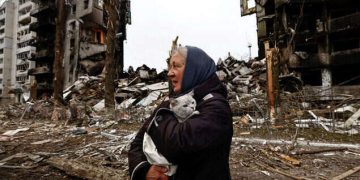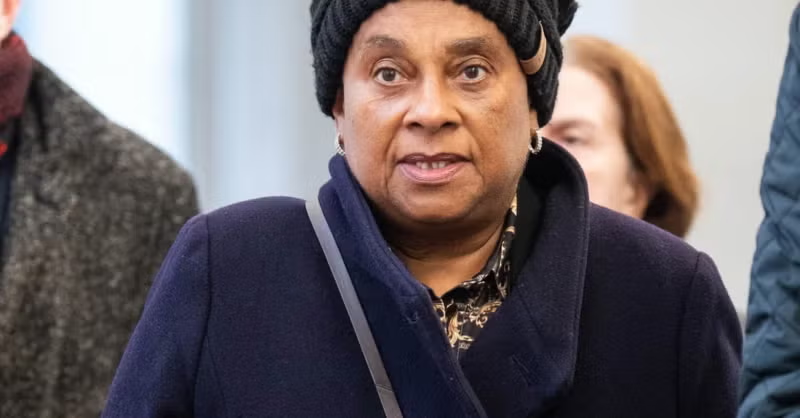PEERS thwarting the Rwanda plan should think about “protecting innocent lives”, Rishi Sunak has warned following the busiest day of Channel crossings this year.
Some 401 illegal migrants came in just seven small boats on Monday – meaning an average 57 squeezed into every dinghy.


It means more than 40,000 migrants have crossed the Channel since the PM took office in October 2022.
Downing Street today lashed out after the House of Lords inflicted five defeats on its flagship deportation plan.
Peers will also continue watering down the legislation with numerous caveats tomorrow before kicking it back to the Commons in the next few weeks.
MPs are expected to strip out their amendments before returning it to the Lords, with the back-and-forth set to continue until one side caves – almost always the unelected chamber.
Desperate to get flights to Kigali off the ground as “an urgent priority”, No10 today urged peers to get out of their way.
The PM’s spokesman said: “There is still an option for the Lords to work with the House of Commons, protect innocent lives from perilous journeys across the Channel, and we hope that they will take that opportunity in future votes.”
Good weather has seen 728 migrants cross the Channel within 48 hours after 327 made the dangerous journey on Sunday.
It takes the annual total so far this year to 2,983, higher than the 2,953 recorded this time last year.
Downing Street insisted that a returns deal with Albania, and the half-a-billion-pound deal with France was helping to stop the boats.
But today ex-Home Secretary Dame Priti Patel demanded the French do more to thwart the smuggling gangs for the eye-watering sums we are handing them.
She said: “I do think the French should do a lot more, quite frankly. We’re paying them I think record sums of money.”
Labour’s Shadow Home Secretary Yvette Cooper said: “This is the Prime Minister who promised the British people he would stop the boats, but has now seen more than 40,000 arrivals on his watch.”
WHAT IS THE RWANDA PLAN? IMMIGRATION SCHEME EXPLAINED
What is the Rwanda plan?
Under the plan, anyone who arrives in Britain illegally will be deported to Rwanda, a country in eastern Africa.
The government believes the threat of being removed to Rwanda will deter migrants from making the dangerous Channel crossing in small boats.
Once in Rwanda, their asylum claims will be processed but there is no route back to the UK, save for some exceptional circumstances such as individual safety concerns. Britain will pay for migrants to start a new life in Rwanda.
What’s the hold up?
First announced by Boris Johnson in 2022, the scheme has been bogged down by relentless legal challenges.
The first flight was due to take off in summer 2022, but was blocked on the runway at the last minute by a European Court order.
Since then the legality of the plan has been contested in the courts, culminating in a Supreme Court judgement in November last year which said Rwanda was unsafe for asylum seekers.
What is Sunak doing?
To salvage the Rwanda plan from the Supreme Court’s scathing ruling, Rishi Sunak announced a two-pronged workaround.
First, he would sign a new treaty with Rwanda to beef up protections for asylum seekers that will be enshrined in law.
Second, he would introduce new legislation that would declare Rwanda a safe country.
It would mean courts, police and officials would have to treat it as safe unless there is a risk of individual and irreparable harm.
How long will that take?
The legislation has cleared the Commons but is now being held up in the House of Lords.
Rishi Sunak does not have a majority in the Lords, and peers are far more hostile to the plan.
They will likely send it back to the Commons with amendments watering down the scheme.
Such changes would be unconscionable to MPs who would strip out the measures and send it back.
This “ping-pong” will continue until either side – usually the unelected Lords – gives in and the Bill passes.
When will flights take off?
Mr Sunak wants to get the first flights sent to Rwanda by the spring.
But potential hurdles include more court battles launched by individual migrants or the European Court of Human Rights.
Mr Sunak has vowed to ignore any more orders by Strasbourg judges to ground planes, although individual appeals in domestic courts could prove tricky.
Sir Keir Starmer has said he will scrap the scheme if he is elected PM, even if it is working.





























